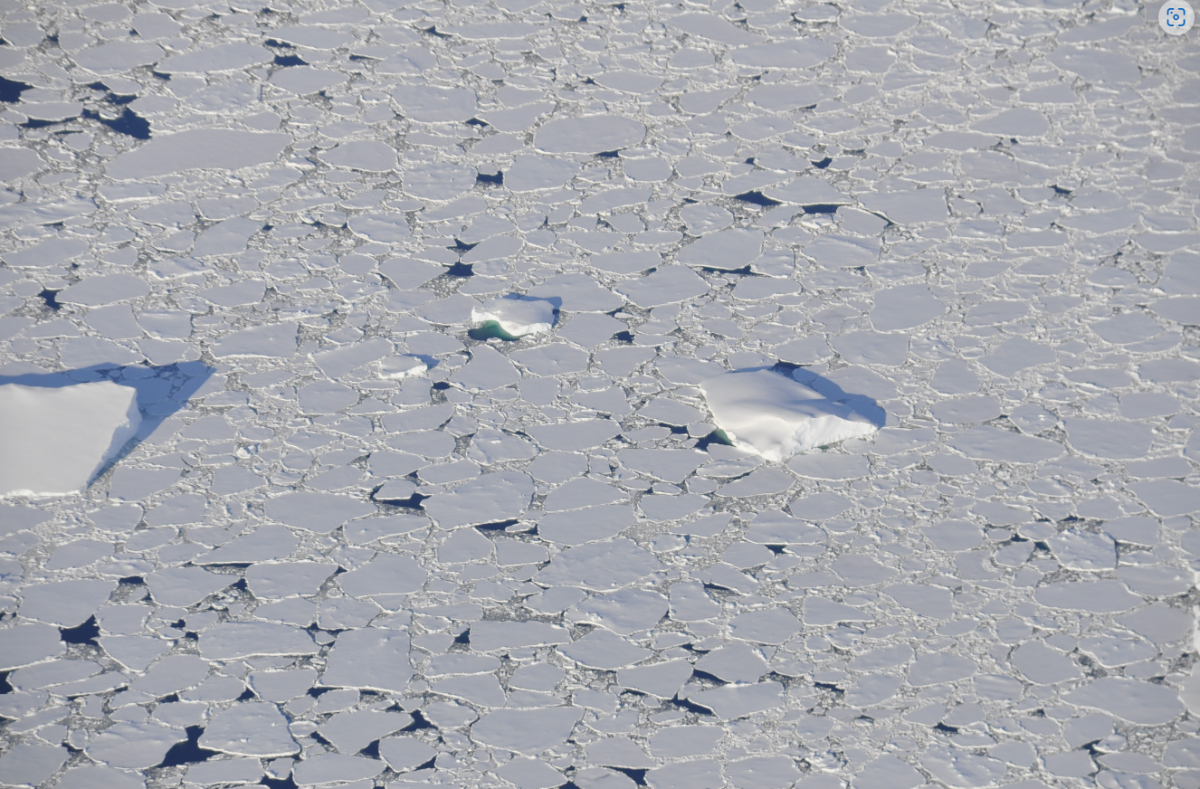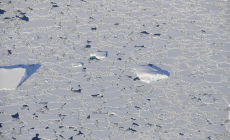-
Satellites Reveal ‘Surprising’ Antarctic Ice Loss, Sea Level Rise - May 21, 2024
-
A portion of Mulholland Drive, damaged by mudslides in winter storms, reopens - May 26, 2024
-
‘Maybe You Don’t Want to Win’ - May 26, 2024
-
Donald Trump Putting Law Enforcement in Danger: Attorney - May 26, 2024
-
Avoid the waters of these 5 L.A. County beaches this holiday weekend, public health officials say - May 26, 2024
-
Bawdy Comedy ‘Anora’ Wins Palme d’Or at Cannes Film Festival - May 26, 2024
-
Map Shows Heat Wave Zone Spread Into Five New States - May 26, 2024
-
Azusa police arrest suspected slingshot-wielding vandal - May 25, 2024
-
Donald Trump Hammers Judge Ahead of Jury Instructions - May 25, 2024
-
Sometimes U.S. and U.K. Politics Seem in Lock Step. Not This Year. - May 25, 2024
Satellites Reveal ‘Surprising’ Antarctic Ice Loss, Sea Level Rise
The extremely low Antarctic sea ice levels in 2023 were even more “surprising” than scientists thought, a study has found.
In 2023, over 770,000 square miles less ice than usual was recorded on the continent. New research published in the Geophysical Research Letters aimed to looked more closely at this event and found that even with climate change contributing to sea ice loss, it is exceptionally rare.
The scientists reached these findings by using satellites and a large climate dataset. They then compared 18 different climate models to assess how likely such an event was. By doing this, the scientists were able to see how such a large sea ice loss was linked to climate change.
And while 2023’s extreme lack of sea ice was linked to climate change, the models still show that this is extremely rare, even under multiple climate scenarios, the study reported.
“This is the first time this large set of climate models has been used to find out how unlikely 2023’s low sea ice actually was,” said the study’s lead author, Rachel Diamond of the British Antarctic Survey, in a statement. “We only have forty-five years of satellite measurements of sea ice, which makes it extremely difficult to evaluate changes in sea ice extent. This is where climate models come into their own.”
She continued: “According to the models, the record-breaking minimum sea ice extent would be a one-in-a-2000-year event without climate change. This tells us that the event was very extreme—anything less than one-in-100 is considered exceptionally unlikely.”

David Vaughan
Around 10 percent of the Earth’s land area is ice, and 90 percent of this is in Antarctica, with the rest in Greenland, according to the World Wildlife Fund. Ice levels are highly important to the global climate, as they form protective layers over the Earth and keep the planet cool. The bright white ice then reflects excess heat back into space.
But as the climate warms, the ice is in big trouble. Climate change, exacerbated by human activities and greenhouse gases, is melting Antarctic ice at a quick rate. The continent is losing ice mass at a rate of 150 billion tons per year, according to NASA. This also contributes to rising sea levels, which could have a global impact.
Other recent research, published in April by the University of Miami and the National Oceanic and Atmospheric Administration’s Atlantic Oceanographic and Meteorological Laboratory, found that the warming of Antarctica’s deep waters is hastening sea level rise in the North Atlantic.
They discovered that a key ocean current system called the Atlantic Meridional Overturning Circulation has weakened by about 12 percent. This is warming deeper waters in the south, which is causing a sea level rise in the North Atlantic.
The researchers in the new study also assessed the likeliness of sea ice recovering after such a large loss in 2023. They discovered that it is very unlikely for the ice to return, even after two decades.
This suggests that 2023’s event could have caused a lasting impact in the Antarctic (or Southern) Ocean.
“The impacts of Antarctic sea ice staying low for over twenty years would be profound, including on local and global weather and on unique Southern Ocean ecosystems — including whales and penguins,” Louise Sime, another co-author of the study, said in the statement.
The exact reason for the low ice levels in 2023 needs more research, but scientists know there are many complex factors. They include warming ocean surface temperatures as well as changes in wind variations. This new study, and others like it, are necessay to find out more about the lasting effect of these huge ice losses.
Do you have a tip on a science story that Newsweek should be covering? Do you have a question about climate change? Let us know via science@newsweek.com.
Uncommon Knowledge
Newsweek is committed to challenging conventional wisdom and finding connections in the search for common ground.
Newsweek is committed to challenging conventional wisdom and finding connections in the search for common ground.
Source link
































